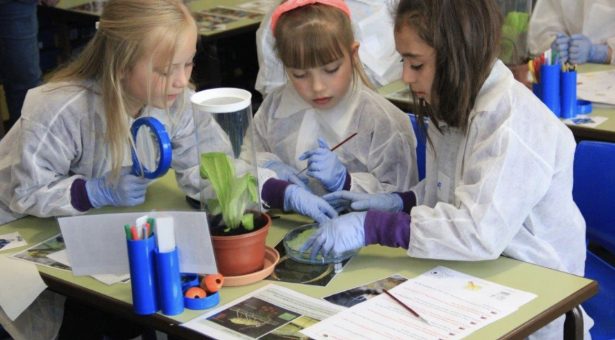SAW (Science, Art and Writing) Trust: Innovative Science Education for Primary Schools and Beyond

The Impact of SAW
- In the UK over the past 20 years, over 7000 primary school children have been taught science directly through SAW workshops.
- Over 500 early career and established scientists have delivered SAW activities.
- In excess of 400 teachers have been trained in SAW methodology.
- Trained teachers are using SAW methodologies in schools locally (Norfolk), nationally (UK) and internationally (Europe, China and the US).
- SAW has published outputs from their workshops in three books; Saw Showcase, See Saw and Saw Antibiotics
- In response to the pandemic SAW produced an activity book for children to explore science at home and have continued this annually to create the collection; ‘Help there’s an alien in my park!’, Help our planet’s in peril!’, ‘Help our rivers need rescuing!’ and ‘Help my friend is stuck on Mars!’. These books have been distributed for free to over 15,000 children.
SAW beyond primary education
The flexible framework of SAW allows workshops to be developed on any topic, delivering cross-curricular learning opportunities and can be curriculum based, challenge based, or project based.
SAW methodology is not limited to primary school children and workshops have been undertaken with older children at secondary schools and sixth form colleges, as well as for university undergraduate and postgraduate students.
SAW also works with adult groups, for example a workshop called Global Gardens brought adults from different backgrounds together, to explore views and share ideas on global genetic plant resources. As well as participating in practical science, art and writing activities, the group discussed the Nagoya Protocol, a framework for sharing and compensating donor countries for their resources.
Participants found that the workshop, “Stretched their thinking about the ethics of biopiracy” and that it, “Broadened their experience: Giving a greater view of the complexity by discussion.”
SAW continues to be ambitious, extending the roll-out of the programme globally and expanding the programme to feature more adult groups, allowing scientific understanding to benefit societal debate amongst a broad range of publics.
to find out more about the work of the Trust visit www.sawtrust.org.
